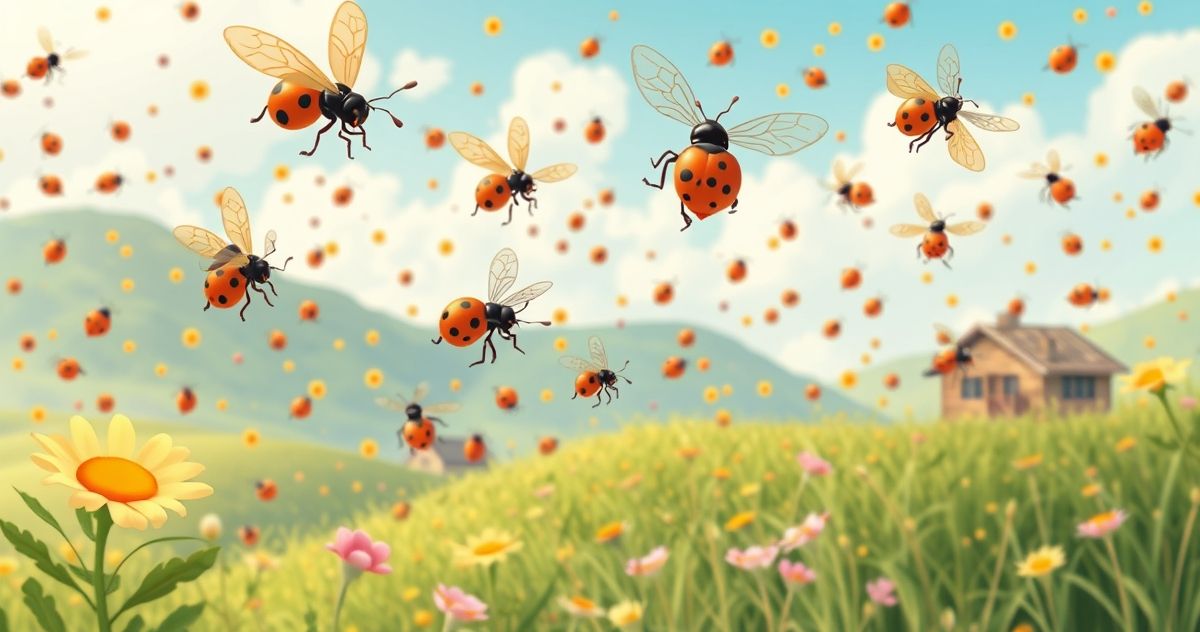Natural Lifecycle Indicates Temporary Phenomenon
As masses of red-backed carpet flies, commonly known as "love bugs," emerge across South Korea causing public discomfort, experts predict that most individuals will naturally disappear by mid-July. This year's emergence has occurred approximately two weeks earlier than usual due to rising temperatures, drawing significant public attention to this phenomenon.

According to officials from the National Institute of Biological Resources, "Looking at the love bug occurrence patterns from last year and the year before, most individuals should naturally perish by mid-July." Love bugs typically begin appearing in mid-June and remain active as adults for about one week until early July.
Researcher Park Yong-mok explained that "most adult love bugs have shown patterns of disappearing around mid-July, and we expect similar patterns this year." Given love bugs' sensitivity to temperature changes, the onset of intense summer heat is expected to cause a rapid decline in their population.
Nationwide Spread Creates Public Inconvenience
Love bug swarms have been spotted in large numbers at various locations including the summit of Gyeyang Mountain in Incheon's Gyeyang District on June 30, as well as in Seoul's Eunpyeong District and Goyang City in Gyeonggi Province, primarily in the northwestern metropolitan area. First discovered in Incheon in 2015, these insects began appearing en masse in the metropolitan area starting in 2022.
Citizens express significant discomfort as love bugs swarm and attach to faces and clothing. Particularly for those enjoying outdoor activities and exercise, love bugs have become a major inconvenience, leading to a surge in pest control requests to local governments.
Public health centers including Pocheon City Health Center are providing guidance on citizen response measures for the mass love bug emergence. However, they emphasize that since love bugs are classified as beneficial insects rather than pests, appropriate responses are needed rather than indiscriminate pest control.
Beneficial Role and Common Misconceptions
Love bugs belong to the order Diptera, family Rhagionidae. During their larval stage, they decompose organic matter such as rotting grass and fallen leaves, playing a crucial role in soil environmental purification. As adults, they assist in flower pollination, functioning as important beneficial insects in the ecosystem.
The establishment of love bugs, which primarily inhabited southeastern China and Okinawa, Japan, in Korea is analyzed to be related to climate change. Their population peaks during early summer months of June and July, showing concentrated emergence during this period.
Korean researchers analyzed the microbial communities of love bugs after their mass emergence in Seoul in 2023, finding low pathogen transmission risks. However, public discomfort and daily life inconvenience caused by mass emergence remain challenges to be addressed.
Natural Predators and Ecological Balance
Recent observations of insects presumed to be love bug predators suggest the possibility of natural population control. Experts explain that "as predators that consume love bugs appear, natural balance within the ecosystem can be achieved."
This natural regulatory mechanism, combined with rising temperatures after mid-July, is expected to lead to decreased love bug populations. Therefore, citizens can expect improved conditions with a bit more patience.
Eco-friendly Awareness Improvement Proposals
The Seoul Institute has proposed an interesting suggestion to improve negative perceptions of love bugs. They recommend creating friendly characters like SpongeBob to represent love bugs, reducing public aversion.
An institute official suggested that "we need to emphasize that love bugs are beneficial insects that help the ecosystem and spread eco-friendly awareness through characterization." This represents a new approach that focuses on ecological perspectives rather than relying solely on pest control.
Response Measures and Precautions
When encountering love bugs, citizens should gently brush them away rather than swatting or killing them with hands. During outdoor activities, wearing dark-colored clothing instead of bright colors and avoiding perfume or heavy cosmetics can be helpful.
Local governments are strengthening monitoring of love bug emergence areas, providing immediate on-site verification and appropriate guidance when citizen reports are received. However, they caution against indiscriminate pesticide use, which could harm other beneficial insects.
The phenomenon demonstrates the complex relationship between climate change, ecosystem dynamics, and urban life, requiring balanced approaches that consider both public comfort and ecological preservation.
Original: https://trendy.storydot.kr/society/love-bug-mass-emergence-july-expert-predictions


0 Comments